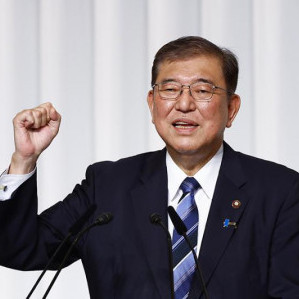
June 28 saw the three-day summit of the Group of Seven (G7) end its work at southern Germany’s Schloss Elmau. The agenda expectedly focused on Ukraine and effects of anti-Russian sanctions. Just a reminder: the G7 is an association of economically developed countries comprising the United Kingdom, Germany, Italy, Canada, the United States, France, and Japan, as well as EU leaders. Summits of the kind traditionally aim to address global political and social challenges.
If we consider the Ukrainian crisis a global political and social problem, the G7 summit has fulfilled its mission – its participants adopted a joint statement expressing whole-hearted support for Zelensky-led regime. They also agreed on the need to keep Russia at bay and prevent its successful growth, though tacitly they must be dreaming to squeeze it out of global politics.
Meanwhile, the G7 accused Russia of destroying Ukraine's agricultural infrastructure, which allegedly entailed a halt in Ukrainian exports and a subsequent jump in prices (for agricultural products), weakening global food security for millions of people. They urged Russia to "enable free passage of agricultural shipping from Ukrainian ports in the Black Sea," while forgetting to say that the one unwilling to clear the waters is Ukraine itself. G7 leaders also agreed to "align and expand sanctions to further restrict Russia's access to key industrial inputs, services and technologies, particularly those supporting its armaments industrial base and technology sector."
At the same time, the Group of Seven was generous towards the Kiev regime and pledged $29.5 billion worth of support to Ukraine to help the country close its financing gap and continue ensuring the delivery of basic services to the Ukrainian people. War support is vital and complements economic assistance provided in 2014 to 2021 accounting for over $60 billion, the joint statement reads.
Moreover, Western states have boosted the supply of weapons and military hardware to Kiev worth billions of dollars. However, the Ukrainian regime wants more, with President Zelensky demanding fresh deliveries, including heavy weapons and air defense systems. He reiterated his demands when addressing the summit via video link, adding that now is not the time for negotiations with Russia, because the only way to start those is Ukraine’s re-established position of strength.
Earlier, British Prime Minister Boris Johnson said that attempts to get back onto a diplomatic track regarding the conflict in Ukraine would contribute to maintaining instability throughout the world. He marked a turning point to turn the tide of war. In response, spokeswoman for the Russian Foreign Ministry Maria Zakharova lambasted the politician’s bad "British political humor."
At the summit in Germany, the British PM was his usual self and even offered to strip off clothes for photographs to outdo Russian President Vladimir Putin’s shirtless pictures. However, no one came to appreciate the joke. US President Joe Biden traditionally had no notion of time and space and he even allowed himself to agree with a statement by French President Emmanuel Macron that the Ukrainian issue should be addresses through negotiations with Russia. Later Johnson ruled out any peace talks of the kind. Obviously, President Biden would have agreed with Johnson as well. He doesn't care whom to agree with, any one rather than Donald Trump. This time, he missed his chance.
Here the British leader voiced an initiative to ignore the G20 summit due in Indonesia this fall, once President Putin is invited. Canadian Prime Minister Justin Trudeau, who is okay with the Bandera diaspora, and Japanese Prime Minister Fumio Kishida concerned about the fate of the Lesser Kuril Ridge, were ready to support him. Realizing that Macron had exhausted his entire fortitude while convincing Biden of the need to negotiate with Moscow (to which "old Joe" nodded, but was about to reject), European Commission leader Ursula von der Leyen took matters into her own hands. On behalf of the European Union, she said this could paralyze the work of the entire G20. Macron agreed with her right away, considering himself a European leader and seeking to demonstrate readiness to fight for EU interests like a lion.
Italian Prime Minister Mario Draghi also conceded, driven by old-established desire to do away with destructive anti-Russian sanctions. And President of the EU Council Charles Michel agreed because the EU can only have one opinion. German Chancellor Olaf Scholz swelled the chorus, especially as Biden did not seem to object. He even raised no objection to Michelle's statement that new sanctions Biden wants to impose against Russia should not target European economies. Still, no one knows how to achieve this.
In general, eccentric Boris Johnson with his clumsy jokes and suggestions failed his first attack. Aware of the British Prime Minister’s assertiveness, we believe he has hardly accepted defeat. Johnson certainly apprehends that once the entire European Union, including the historically pro-American European Commission, has taken a moderate stance and clearly plans to use the upcoming G20 meeting to try to establish contact with Putin, who will definitely be there in Bali, the option of forcing the Europeans to do an about-face is next to impossible, except for making them look for some compromise.
In fact, the G7 summit in Germany revealed the group’s split into the EU and the rest. While the United States, Canada, Great Britain and Japan are ready to increase sanctions pressure against Russia, with Boris Johnson even attempting to open a second front in the Baltic, the European Union has grown frightened by how things unfold. Rome, Paris, Berlin and Brussels are obviously cognizant of signals Russia sends. Moscow demonstrates readiness to take up any challenge from the West, including the military one.









